Related Research Articles
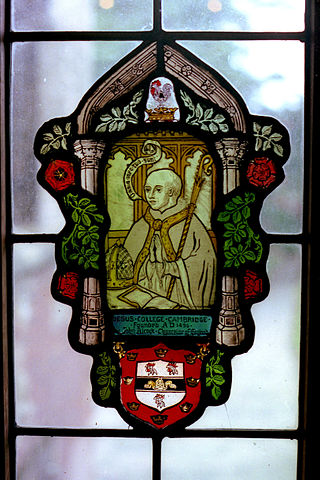
John Alcock was an English churchman, bishop and Lord Chancellor.
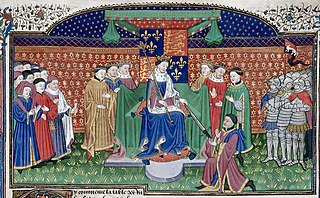
John Stafford was a medieval English prelate and statesman who served as Lord Chancellor (1432–1450) and as Archbishop of Canterbury (1443–1452).
Michael Northburgh, otherwise Michael de Northburgh (Northborough), was the Bishop of London between 1354 and his death in 1361. He was the nephew of Roger Northburgh, Bishop of Coventry and Lichfield.
Simon Islip was an English prelate. He served as Archbishop of Canterbury between 1349 and 1366.
William Strickland was an English priest and sometime Rector of St. Mary's Church, Horncastle who served as Bishop of Carlisle from 1400 until 1419. He was appointed by Pope Boniface IX, but not initially accepted by King Henry IV, although he did confirm the appointment after the chapter had elected him. He was consecrated on 15 August 1400. Strickland was one of the commissioners who negotiated peace with Scotland in 1401.
Marmaduke Lumley was an English priest, Bishop of Carlisle from 1429 to 1450, and Knight Commander of the Order of St. John of Jerusalem. He was a son of Ralph de Lumley, 1st Baron Lumley and Eleanor de Neville. He was elected about 5 December 1429, and consecrated on 16 April 1430. He was Bishop of Lincoln for a short time before his death in December 1450. He was educated at University of Cambridge and was appointed Precentor of Lincoln Cathedral in 1425. He also became Chancellor of the University of Cambridge in 1427 and was Master of Trinity Hall, Cambridge from 1429 to 1443. From 1446 to 1449 he served as Lord High Treasurer of England. Lumley's tenure as Lord High Treasurer occurred during the Great Bullion Famine and the Great Slump in England.
John Langton was a chancellor of England and Bishop of Chichester.
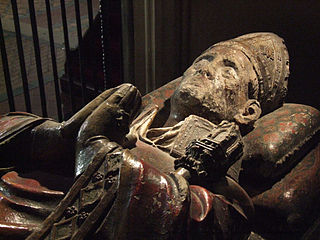
John Sheppey was an English administrator and bishop. He served as treasurer from 1356 to 1360. Little is known of his family and background. A Benedictine, he was ordained deacon in 1318, and later studied at Oxford. Later he became involved in royal government, and was made bishop of Rochester on 22 October 1352. He was consecrated on 10 March 1353. He died on 19 October 1360, and was buried in Rochester Cathedral at the altar of St John the Baptist. As his will shows, he was a friend of his predecessor in the treasury, William Edington.
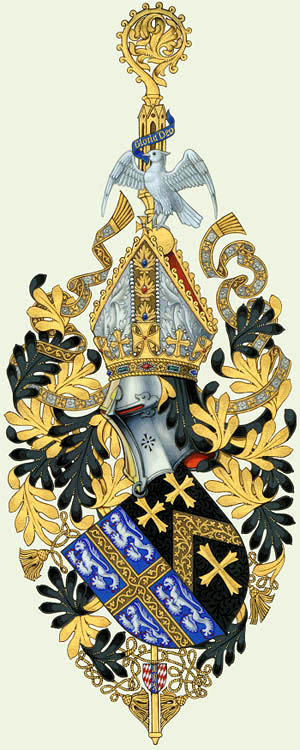
John Fordham was Bishop of Durham and Bishop of Ely.

John Barnet was a Bishop of Worcester then Bishop of Bath and Wells then finally Bishop of Ely.
Gilbert Welton was a Bishop of Carlisle. He was selected on 13 February 1353, and consecrated 21 April 1353. He died in November or December 1362.
Stephen Patrington was a medieval Bishop of St. David's and Bishop of Chichester.
John Burghill was a medieval Bishop of Llandaff and Bishop of Coventry and Lichfield.
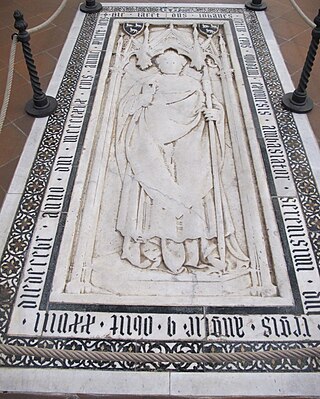
John Catterick was a medieval Bishop of St David's, Bishop of Coventry and Lichfield, and Bishop of Exeter.
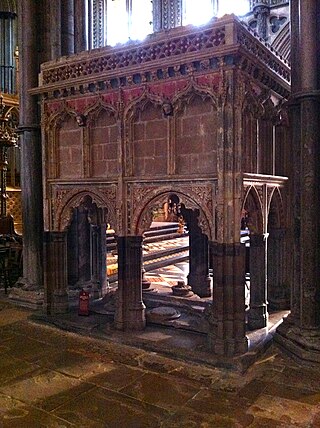
John Hotham was a medieval Chancellor of the Exchequer, Lord High Treasurer, Lord Chancellor and Bishop of Ely. He was also effective Governor of Ireland for a time.
John Gilbert was a medieval Bishop of Bangor, Bishop of Hereford and Bishop of St. David's.

John Bokyngham was a medieval treasury official and Bishop of Lincoln.
John Wakering was a medieval Bishop of Norwich.

Richard FitzJames was an English academic and administrator who became successively Bishop of Rochester, Bishop of Chichester, and Bishop of London.
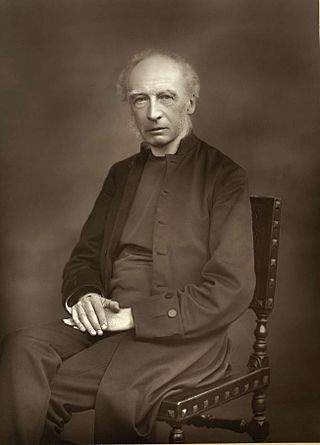
Charles John Ellicott (1819–1905) was a distinguished English Christian theologian, academic and churchman. He briefly served as Dean of Exeter, then Bishop of the united see of Gloucester and Bristol.
References
- Fryde, E. B.; Greenway, D. E.; Porter, S.; Roy, I. (1996). Handbook of British Chronology (Third revised ed.). Cambridge, UK: Cambridge University Press. ISBN 0-521-56350-X.